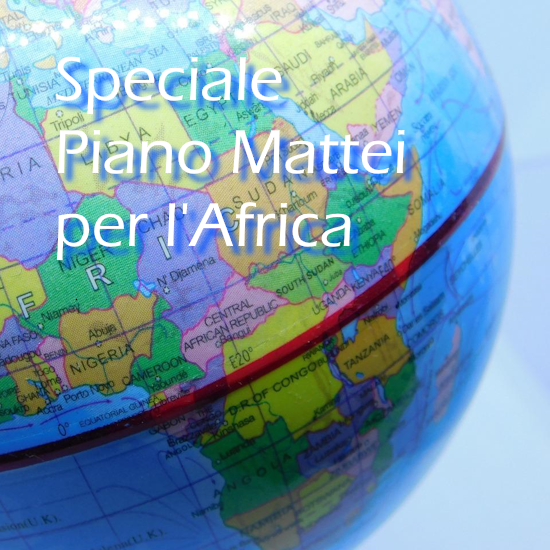 Terre des Hommes Italia ricerca un/a Consulente External Evaluator per un progetto implementato in Palestina. Scadenza invio candidature 19 dicembre 2018
Terre des Hommes Italia ricerca un/a Consulente External Evaluator per un progetto implementato in Palestina. Scadenza invio candidature 19 dicembre 2018
Call for EOI for the selection of an External Evaluator
to carry out the final evaluation of the project
“Valuing diversity: inclusive education intervention for East Jerusalem children”
(ENI/2016/359-883)
Co-funded by the European Commission (main donor), UEFA Foundation for Children and Terre des Hommes Italia
Background information
Nature of the intervention
TDH It works in Palestine since 2000, and it has implemented several educational, health and psycho-social interventions together with its National Partners and with Local Authorities in East Jerusalem, the West Bank and the Gaza Strip. Within the frame of its activities, TDH It is implementing a 3-year project called ‘Valuing diversity: inclusive education intervention for East Jerusalem children’, which focuses on 10 Awqaf schools located in East Jerusalem that expressed the willingness of adopting a more inclusive approach, and of opening their premises to all children of the neighbourhood to provide them structured inclusive activities and safe places to play. The project also targets out-of-school children, including children under detention/home arrests, who are in need of educational and/or legal support.
Area of intervention
East Jerusalem, specifically Wadi el Joz, Sheikh Jarrah, Bab az-Zahra, Silwan at-Thouri, Ras al-Amoud, the Old City, Sheikh Saad and Zaayyem.
Duration of the project
16th of May 2016 to 15th of May 2019
Direct beneficiaries
2,350 students of 10 schools in the target area and their parents; 120 school personnel; 100 out of school children; Ministry of Education and Higher Education (MoEHE) Officials/Counsellors/Supervisors; 10 Inclusive Education School Staff (IESS); schools involved in the network; 70 University students
Overall objective
Contribute to the full enjoyment of the right to education for Palestinian children in East Jerusalem.
Specific objective
Improve the quality of and increase access to basic education in East Jerusalem with an inclusive perspective
Expected results pursued by the project
The project addresses structural issues such as staff training and works in partnership with school teachers and principals to support the students learning process and the quality of the educational service provided. In addition, the project promotes the participation of students and school/family interaction, creating a community where people cooperate to the growth and education of the child by implementing adaptations of the curricula and of the school environment which all students will benefit from.
The project aims to achieve the following results:
Enhanced capacity towards developing an inclusive culture and inclusive educational practices among educators of target schools
Children aged 5 to 16 years living and/or attending school in the targeted area have access to inclusive educational services, increase their school attendance and/or their school performance and participate in structured inclusive activities
Parents and members of the local community are empowered and sensitized to a more inclusive approach and participate in inclusive extracurricular activities and in workshops/seminars
Networking among Awqaf schools in Jerusalem is enhanced, supporting the exchange of educational practices
Enhanced capacity of the JDoE and the school staff in data collection and analysis
Child rights based support to out of school children with focus on arrested children
Methodology of the intervention
The reference framework for the development of an inclusive educational environment that has been adopted for the project is that of the Index for Inclusion. The Index is a resource to support the inclusive development of schools in which inclusion is about the development of all children. Inclusion starts from a recognition of the differences between students, and of the need to build on such differences. Labelling children for ‘having special educational needs’ shifts the focus on the individual child: it lowers the expectations placed on them and ultimately condones any shortcomings of the educational system. The work to be done with students who experience difficulties should instead be connected with changes that are beneficial for the entire school: the school should address the sources of difficulties and look at how its relationship, cultures, curriculum, teaching and learning approaches, policy and school organization can be improved to impact on the entire student community, so that barriers to learning and participation be reduced for any student.
Expected output of the consultancy
Purpose of the evaluation
The consultancy aims to deliver a final evaluation of the project. The purpose of the evaluation is to assess the extent to which the project objectives have been met and its broader theory of change has been realized. It will assess the project against the OECD-DAC criteria (relevance, effectiveness, efficiency, impact, sustainability) and the project log-frame. The evaluation should also provide recommendations and draw lesson that can inform current and future programming.
Methodology
The consultant is expected to propose rigorous and appropriate methods for final evaluation, which will include, but are not necessarily limited to: desk review of key documents, data collection (including interviews and focus group discussions), analysis, reporting and a finding sharing workshop.
Deliverables
The consultant is expected to provide the following deliverables as a minimum requirement: final evaluation report. The report shall include: timesheet, list of people met, bibliography, findings, recommendations. All documents and reports to be produced as part of this consultancy, as well as any email exchange and other communication related to the consultancy, shall all be written in English. All meetings, focus groups and field visits shall be done in Arabic.
Timeframe
The final evaluation is expected to be delivered during April 2019 and the final report should be completed by end of April 2019. In case of extension of the project implementation period, the schedule of the final evaluation could be postponed.
Skills and qualification required
University degree in Social Science, Education, Development or any area relevant to this assignment
A minimum of 5 years of experience leading and managing complex evaluation assignment
A minimum of 7 years of experience working in development and/or emergency interventions
Demonstrated experience in quantitative and qualitative data collection and analysis
Demonstrated experience in conducting evaluation of education projects
Experience in the Middle East
Experience with EU funded projects
Excellent analytical and reporting skills
Good computer literacy with high proficiency in Word and PowerPoint
Availability to move within the West Bank and East Jerusalem
Fluency in written and spoken English required, Arabic is a much appreciated plus
Knowledge of the Palestinian school curriculum, the Palestinian school system and inclusive approaches (including the Palestine Inclusive education policy) is also a plus
Strong commitment to protect children and respect TDH values, Child Protection Policy and Code of Ethics
Both individuals, teams and companies are allowed to apply.
Selection process
The selection process will be conducted as follows:
by or before December, 19th, 2018, candidates should express their interest to Terre des Hommes Italia to participate to the selection process.
by January, 4th, 2019, Terre des Hommes Italia shall select a maximum of five eligible candidates among the applicants, who will be invited to submit their proposal and financial offer; applications received by the deadline that will be communicated will be analysed by a committee.
TDH will then communicate the final outcome of the selection by means of an e-mai
Privacy and disclaimer
Data and information provided by the applicants and/or acquired by Terre des Hommes Italia during the selection process of the EE, and afterwards in the course of the consultancy, will be solely processed for the purpose of evaluating the proposals, selecting the EE and facilitating his/her work, according to the principles of correctness, legality, transparency and in full respect of the privacy and individual rights of the applicants. No information shall be transferred to any third party with the exception the financing institutions.
HOW TO APPLY:
Interested candidates are invited to send to i.masieri@tdhitaly.org their CV(s) and motivation letter as expression of interest no later than December, 19th, 2018. The message shall have the following object: EE-ENI/2016/359-883. Please, note that incomplete/delayed applications will not be considered.
TDH Italy apologises in advance as only shortlisted candidates will be contacted and invited to send a full technical proposal and financial offer.









